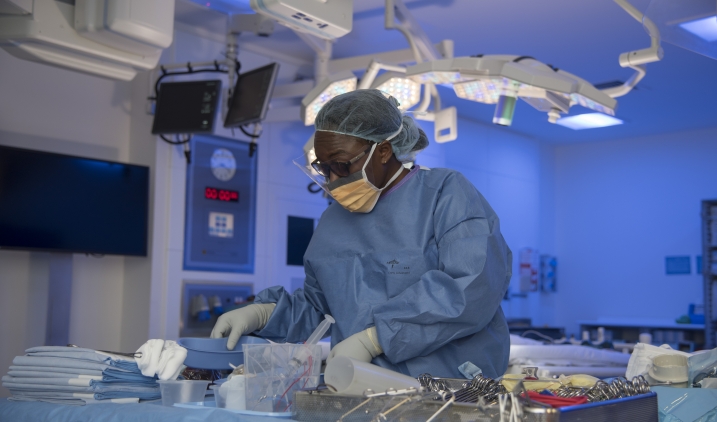Theatre nurses work with patients of all ages and are involved in each phase of a person’s operation.
Working life
You’ll provide high standards of skilled care and support during each phase of a patient’s perioperative care.
Perioperative care can be divided into four phases:
• preoperative (pre-assessment)
• anaesthetics
• surgical phase
• recovery phase
Theatre nurses can also specialise in a specific area such of perioperative care or rotate through the areas.
Theatre nurses can also specialise in a specific area such of perioperative care or rotate through the areas. Rotation is more likely to happen in day surgery.
Theatre nurses can also specialise in a specific area such of perioperative care or rotate through the areas.
Preoperative phase
During the preoperative assessment, you’ll make sure a patient is fully informed about the risks and benefits of the operation and that that they are in a good state of health for surgery. You’ll provide information about the operation and give the patient the opportunity to ask questions. This also reduces the risk of a late cancellation and resources being wasted.
Anaesthetic phase
During this phase, you’ll primarily support the anaesthetist but also prepare any specialist equipment, devices and drugs. You’ll also assess the patient immediately prior to the surgery.
Surgical phase
You’ll be responsible for a number of roles during the surgical phase including:
• preparing all the necessary complex instruments and equipment including microscopes, lasers and endoscopes
• working with the surgeon to provide instruments, needles, swabs and other materials as required
• responsibility for the surgical instruments, equipment and swabs
• act as a link between the surgical team and other parts of the theatre and hospital.
Recovery phase
Following the operation, you’ll:
• offer the patient care and support upon arrival on the post anaesthetic care unit
• monitor the patient’s health
• providing appropriate care and treatment until the patient has recovered from the effects of the anaesthesia and/or surgery
• assess the patient to ensure they can be discharged back to a ward
• assess the care given during each of the perioperative phases
Where will I work?
You’ll work primarily within hospital operating theatres and anaesthetic/recovery areas. You may also be involved with procedures on wards, clinics or in other specialist areas such as cardiac catheterisation units. You’ll work as part of a large team that will include surgeons, anaesthetists, operating department practitioner (ODPs), theatre support workers and porters.
You may also work with healthcare scientists such as audiologists or cardiac physiologists when fitting cochlear implants or pacemakers.
Entry requirements
You’ll need to be a registered adult, child, mental health or learning disability nurse to work as a theatre nurse. After a period of induction you will undertake specialist training including courses to consolidate the specialist skills you’ll require to work in theatre.

